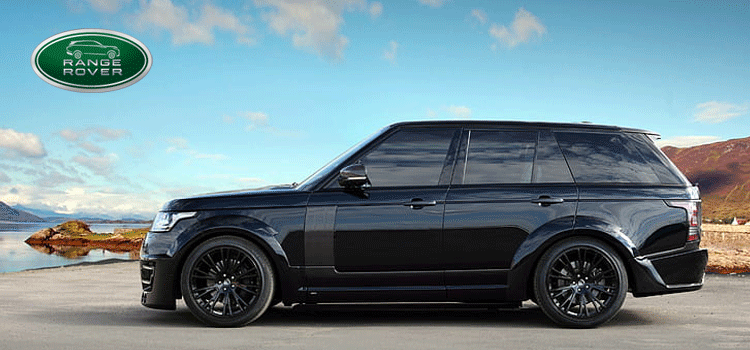
Introduction:
The Range Rover Diesel Hybrid Engine has attracted considerable attention as an advanced fusion of luxury and eco-consciousness. Designed to deliver robust power alongside commendable fuel efficiency, it presents an attractive solution to today’s call for greener automotive options while maintaining performance. But, beneath its promising facade lies an important query: Does the Range Rover Diesel Hybrid Engine genuinely deliver on its fuel-saving promises, or are there unexpected hurdles that diminish its touted advantages? Exploring this balance between innovation and practicality unveils a narrative of the latest automotive engineering striving for both sustainability and driving excellence.
A Technical Wonder:
The RangeRover Diesel Hybrid Engine is the latest piece of engineering, blending a 3.0-liter V6 diesel engine with an electric motor. This hybrid system is designed to deliver a smooth driving experience, with the diesel engine providing potent power and the electric motor contributing to minimized emissions and boosted fuel economy. The engine produces a combined output of 335 horsepower and 516 lb-ft of torque, enabling the vehicle to accelerate from 0 to 60 mph in just 6.5 seconds. This commendable performance is complemented by the engine’s ability to switch between electric and diesel modes, improving fuel consumption in several driving conditions.
Fuel Efficiency:
The Range Rover diesel hybrid engine promises an incredible blend of power and efficiency, with an official fuel consumption figure of 36 miles per gallon (MPG). This is quite impressive for a vehicle of its size and class. But, the real-world performance can tell a different story. Actual fuel efficiency is different based on driving conditions like terrain, load, and driving style. In busy urban environments with persistent stop-and-go scenarios, the hybrid system surpasses by leveraging electric power to cut down diesel use. Conversely, on highways where the diesel engine dominates, fuel efficiency can notably fall short of the advertised numbers.
Problems with the Range Rover Diesel Hybrid Engine
Despite the latest technology behind the RangeRover Diesel Hybrid Engine, there are various challenges that potential buyers should be aware of. One of the basic problems with the RangeRover Diesel Hybrid Engine is its fuel efficiency, which may not always match the manufacturer’s claims. In special driving conditions, specifically in stop-and-go traffic or during short trips, the hybrid system may not have enough time to switch to electric mode effectively, causing higher-than-expected fuel consumption.
Moreover, the extra weight of the hybrid system, including the electric motor and battery pack, can adversely impact overall efficiency. This weight increase may offset some of the fuel savings, particularly in urban environments where continuous acceleration and deceleration are required. Also, the complexity of the hybrid system introduces potential maintenance issues, which could further impact the engine’s long-term efficiency.
Balancing Performance and Efficiency:
The RangeRover Diesel Hybrid Engine aims to maintain a balance between performance and fuel efficiency, but achieving this balance is also with its challenges. While the hybrid system can provide incredible fuel economy under ideal conditions, like steady highway cruising, it may compete to deliver the same results in more demanding driving conditions. For drivers who first and most navigate urban environments, the problems with the RangeRover Diesel Hybrid Engine may become more apparent, as the engine may not be able to fully capitalize on its hybrid capabilities.
Conclusion:
The Range Rover Diesel Hybrid Engine epitomizes a significant step forward in the latest automotive technology, offering a fusion of luxury, performance, and environmental responsibility. However, the answer to the question, “Is the RangeRover Diesel Hybrid Engine fuel-efficient?” is not straightforward. While the engine has the power to deliver incredible fuel economy, especially on long highway journeys, real-world driving conditions may show some problems with the RangeRover Diesel Hybrid Engine that could affect its overall efficiency.
For those considering a Range Rover Diesel Hybrid, it’s important to weigh the advantages of the hybrid system against the potential challenges. Understanding the particular driving conditions and habits that will most benefit from the hybrid technology is vital in determining even if this engine is the right choice. Finally, while the Range Rover Diesel Hybrid Engine offers a promising solution for eco-conscious luxury car enthusiasts, prospective buyers should be aware of the problems with the Range Rover Diesel Hybrid Engine and consider whether its fuel efficiency aligns with their driving needs.
FAQs:
What is the fuel efficiency of the RangeRover Diesel Hybrid Engine?
It has a fuel consumption figure of 36 MPG.
Does the Range Rover Diesel Hybrid Engine perform well in urban driving conditions?
Fuel efficiency may be lower in stop-and-go traffic compared to highway driving.
How does the hybrid system impact the vehicle’s weight?
The extra weight from the electric motor and battery can impact overall efficiency.
Are there maintenance issues with the Range Rover Diesel Hybrid Engine?
The complexity of the hybrid system may cause potential maintenance issues.
Can the Range Rover Diesel Hybrid Engine deliver on its fuel-saving promises?
Real-world performance may differ, sometimes falling short of advertised figures.


